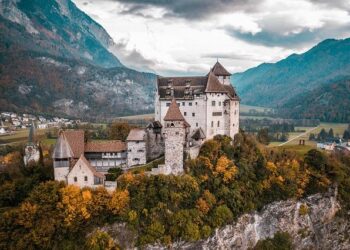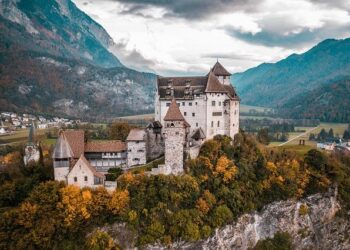The Liechtenstein Institute for Self-Determination at Princeton University recently hosted a pivotal panel discussion titled “How to Prosecute Genocide?” The event brought together leading experts in international law, human rights, and transitional justice to explore the complex legal, moral, and practical challenges involved in bringing perpetrators of genocide to account. As global conflicts continue to challenge the international community, the panel provided critical insights into existing judicial mechanisms, potential reforms, and the role of states and institutions in combating one of humanity’s gravest crimes.
Understanding the Legal Frameworks Behind Genocide Prosecution
Prosecuting genocide involves navigating a complex web of international and domestic legal frameworks designed to ensure accountability for some of the gravest crimes against humanity. Central to this legal landscape is the 1948 Genocide Convention, which not only defines genocide but also obligates signatory states to prevent and punish acts intended to destroy, in whole or in part, specific national, ethnic, racial, or religious groups. Additionally, the establishment of international tribunals such as the International Criminal Court (ICC) has provided a permanent forum for addressing genocide, transcending traditional jurisdictional limits that often impede justice.
The panel highlighted several critical challenges prosecutors face, such as gathering credible evidence from conflict zones and overcoming political obstacles that may shield perpetrators. The discussion also illuminated the evolving role of universal jurisdiction, where countries can prosecute genocide suspects irrespective of where the crime occurred. Key elements in the prosecution process include:
- Defining acts of genocide within legal parameters
- Linking individual responsibility to mass atrocities
- Cooperation between international and local legal bodies
- Protection and support for witnesses and victims
| Legal Instrument | Year Enacted | Scope |
|---|---|---|
| Genocide Convention | 1948 | Defines genocide and state obligations |
| Rome Statute (ICC) | 1998 | Establishes ICC jurisdiction over genocide |
| Ad hoc Tribunals | 1993-2017 | Temporary courts for Rwanda, former Yugoslavia |
Challenges Faced by International Courts in Bringing Perpetrators to Justice
The hurdles international courts encounter in prosecuting perpetrators of genocide are multifaceted and deeply entrenched. One of the primary challenges lies in jurisdictional limitations, where courts often lack authority to operate within sovereign nations unwilling to cooperate. This is compounded by political pressures from powerful states, which can lead to selective justice or even outright obstruction. Additionally, gathering credible evidence poses significant difficulties due to security risks in conflict zones and the passage of time eroding witness memory and physical proof.
Further complicating prosecutions is the issue of resource constraints, where many international tribunals operate with limited funding and personnel, hindering thorough investigations and timely trials. Courts must also navigate complex legal frameworks and cultural sensitivities, striving to uphold fair trial standards while respecting diverse legal traditions. The table below summarizes key obstacles faced by these judicial bodies:
| Challenge | Description | Impact |
|---|---|---|
| Jurisdictional Gaps | Limited access to certain territories | Delayed or blocked prosecutions |
| Political Interference | Pressure from influential states | Biased or inconsistent justice |
| Evidence Collection | Security risks, degraded proof | Weakened case reliability |
| Resource Limitations | Insufficient funding and staff | Slow or incomplete trials |
Expert Recommendations for Strengthening Global Accountability Mechanisms
The panelists emphasized the urgent need to enhance transparency and cooperation among international bodies tasked with upholding justice in genocide cases. Strengthening the legal infrastructure requires a multi-faceted approach focused on harmonizing procedural standards and ensuring that jurisdictional overlaps do not hinder timely trials. Experts warned that without cohesive frameworks, efforts to hold perpetrators accountable remain fragmented and ineffective.
Key recommendations included:
- Institutionalizing regular cross-border judicial dialogues to foster knowledge exchange and build mutual trust.
- Establishing a centralized evidence-sharing platform to accelerate the collection and preservation of critical documentation.
- Increasing funding for victim support programs to encourage witness cooperation and testimony.
- Implementing robust safeguards to protect the independence of prosecutors and judges against political interference.
| Challenge | Recommended Solution | Impact |
|---|---|---|
| Jurisdictional conflicts | Unified international protocols | Streamlined prosecution process |
| Evidence fragmentation | Centralized data platforms | Faster case resolutions |
| Political interference | Independent oversight bodies | Impartial rulings |
Insights and Conclusions
The “How to Prosecute Genocide?” panel hosted by the Liechtenstein Institute for Self-Determination offered a critical examination of the complex legal and moral challenges involved in holding perpetrators accountable for one of the gravest international crimes. As experts and scholars engaged in rigorous discussion, the event underscored the ongoing need for robust legal frameworks and international cooperation in combatting genocide. The panel’s insights contribute to a broader understanding of how the global community can work toward justice and prevention, reaffirming Liechtenstein Institute’s role as a platform for addressing pressing issues in international law and human rights.
















